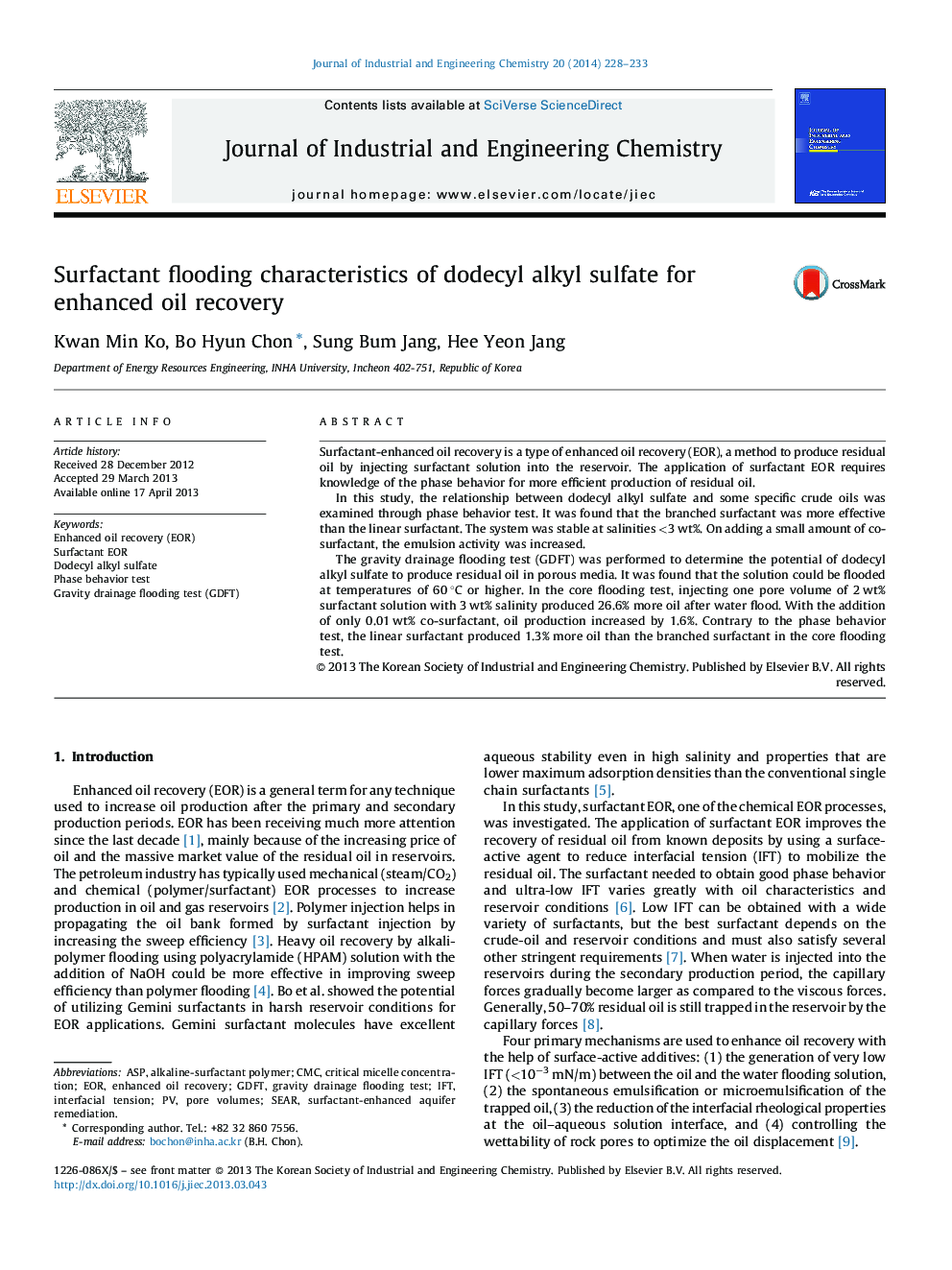| Article ID | Journal | Published Year | Pages | File Type |
|---|---|---|---|---|
| 227848 | Journal of Industrial and Engineering Chemistry | 2014 | 6 Pages |
Surfactant-enhanced oil recovery is a type of enhanced oil recovery (EOR), a method to produce residual oil by injecting surfactant solution into the reservoir. The application of surfactant EOR requires knowledge of the phase behavior for more efficient production of residual oil.In this study, the relationship between dodecyl alkyl sulfate and some specific crude oils was examined through phase behavior test. It was found that the branched surfactant was more effective than the linear surfactant. The system was stable at salinities <3 wt%. On adding a small amount of co-surfactant, the emulsion activity was increased.The gravity drainage flooding test (GDFT) was performed to determine the potential of dodecyl alkyl sulfate to produce residual oil in porous media. It was found that the solution could be flooded at temperatures of 60 °C or higher. In the core flooding test, injecting one pore volume of 2 wt% surfactant solution with 3 wt% salinity produced 26.6% more oil after water flood. With the addition of only 0.01 wt% co-surfactant, oil production increased by 1.6%. Contrary to the phase behavior test, the linear surfactant produced 1.3% more oil than the branched surfactant in the core flooding test.
